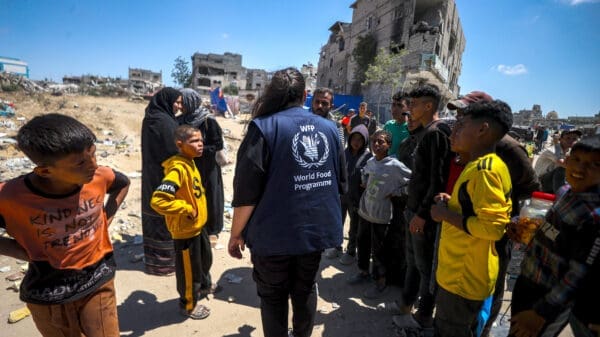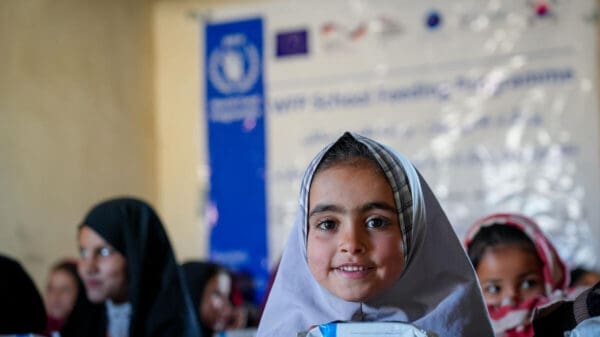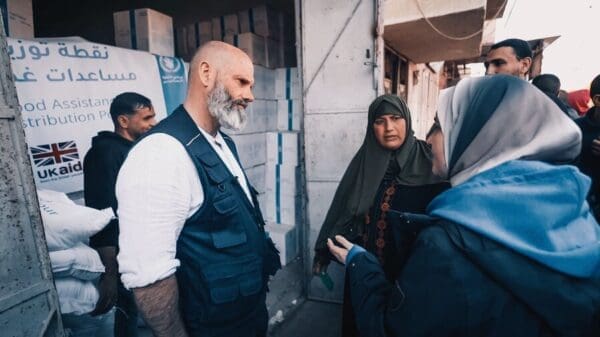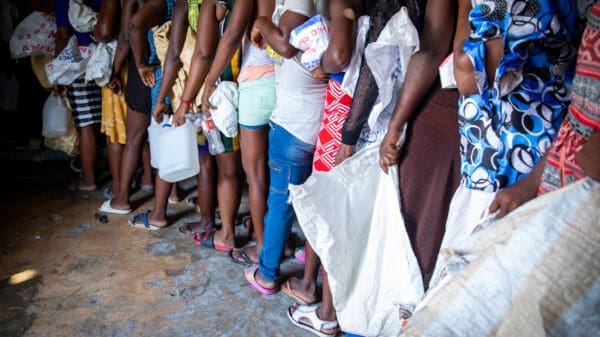2023 Impact Report: How WFP Is Meeting the Global Hunger Crisis
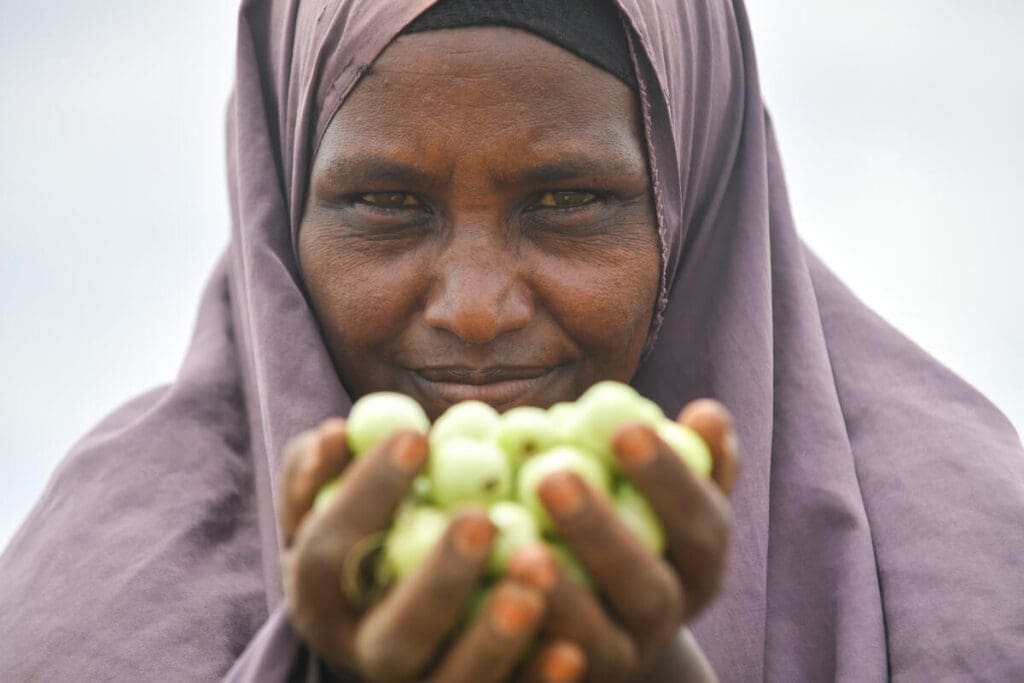
The latest World Food Program USA Statement of Impact summarizes key events from 2023. The report highlights how the United Nations World Food Programme (WFP) worked to address hunger emergencies and invest in programs that build communities’ long-term food security.
Behind each example in the report is the dedication of our supporters. We hope this collection of stories and photographs connects you to the people and communities WFP reaches thanks to your generous support.
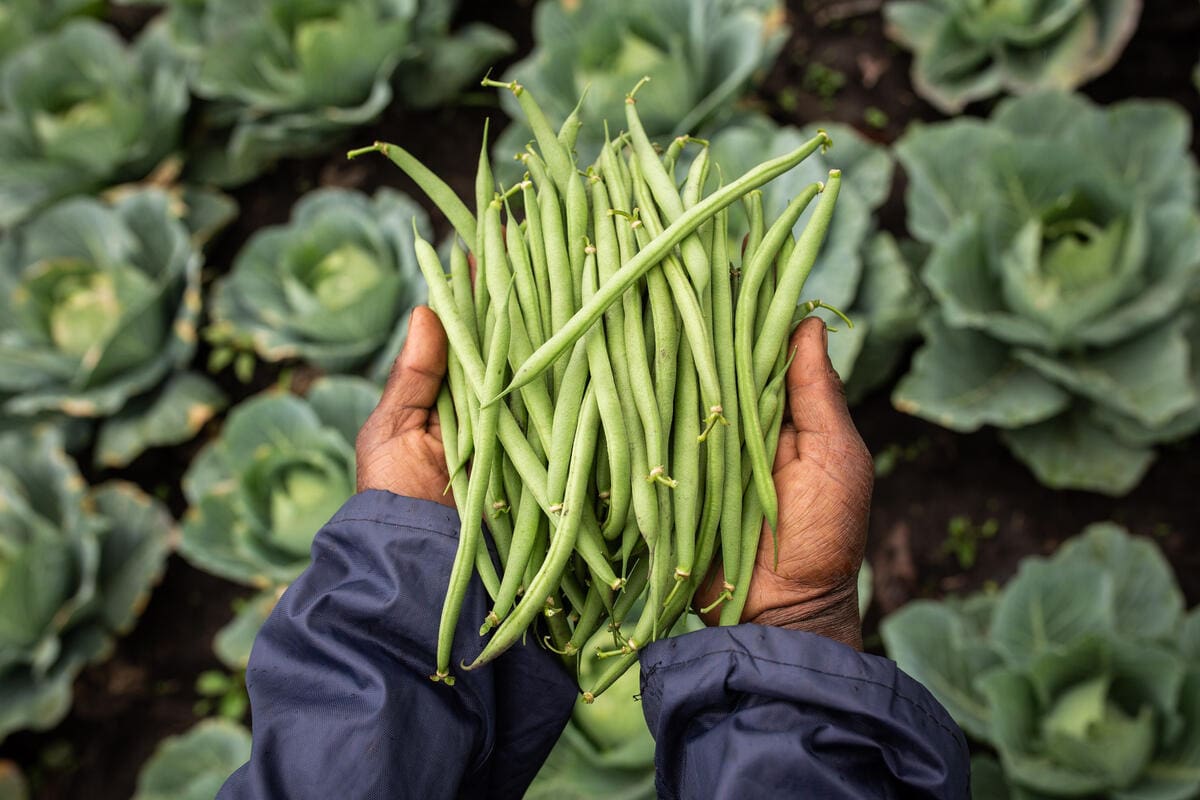
In the Nakivale refugee settlement in Uganda, WFP helps refugees grow food – like these green beans – in backyard gardens.
The State of Global Hunger in 2023
Driven by conflict, the climate crisis and economic conditions, 333 million people experienced extreme hunger in 2023. The underlying causes are pervasive poverty and rampant inequality that limit people’s access to food. Women and girls are most affected.
The current state of hunger makes our work more important than ever before.
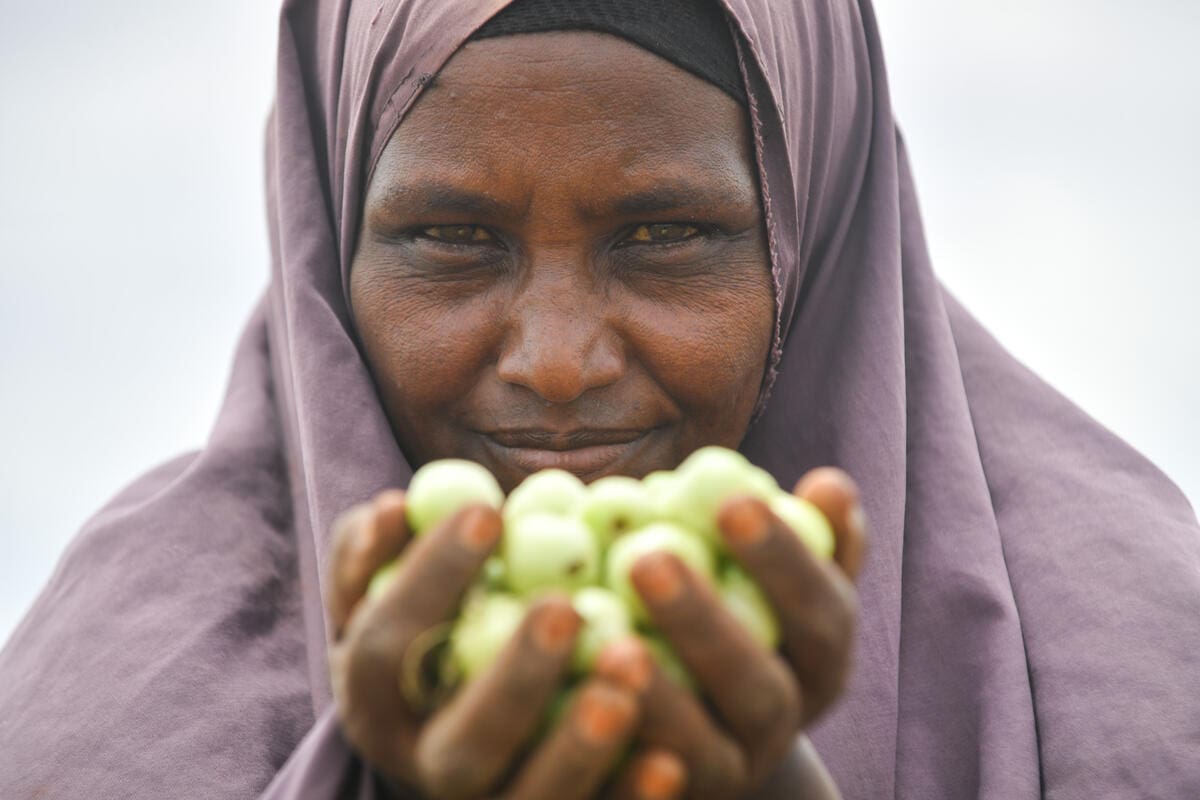
In 2023, the U.N. World Food Programme reached over 100 million people with food, cash and other aid.
WFP Saves Lives in Emergencies
In 2023, we witnessed the escalation of conflict in Sudan and Gaza, which have triggered massive displacement and extreme hunger.
In Gaza, all families are skipping meals every day. Markets have all but collapsed and the price of essential food items has spiked. Fulfilling its humanitarian mandate, WFP launched an emergency operation and has provided food and cash assistance to nearly 1 million people since October.
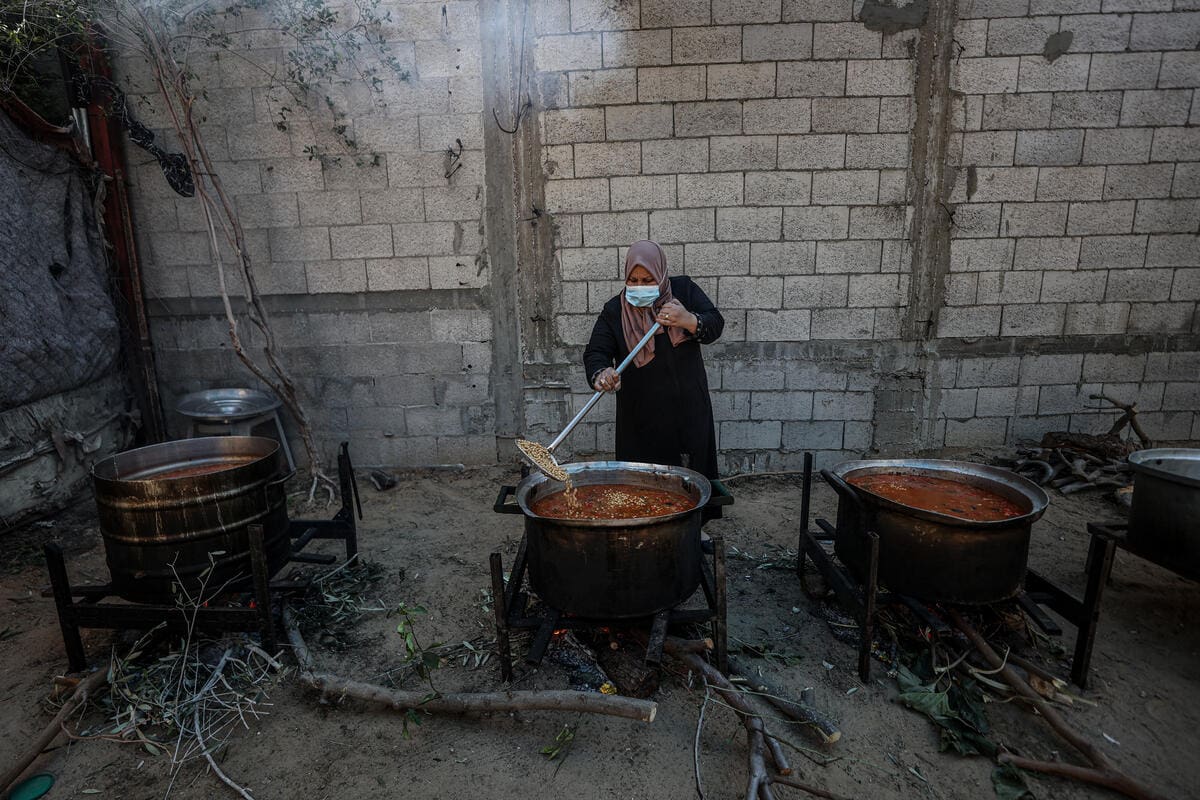
Food is a lifeline for those affected by violent conflict and can help build a pathway to peace.
In Sudan, WFP provided food assistance to over 5 million people in 17 of 18 of Sudan’s states. The magnitude of the conflict has triggered one of the world’s worst displacement crises as Sudanese flee to neighboring Chad, Ethiopia, Egypt and South Sudan. In response, WFP provided nearly 1 million Sudanese refugees with food, cash and nutrition assistance in 2023.
In other emergencies like Afghanistan, Ukraine, Ethiopia and Syria, WFP reached millions of people facing extreme hunger with food, cash and other forms of support.
Our Commitment to Changing Lives
WFP also invests in programs that span beyond emergency assistance. School meals programs, support for small-scale farmers and business trainings for women are all examples of our dedication to breaking the cycle of hunger.
In places like Venezuela and Somalia, school meals served as an incentive for girls and people with disabilities to attend and remain in school. These people are often excluded from learning opportunities. School meals are a vital intervention to ensure all students have access to food and education. For 52-year-old Luis Enrique, school meals prompted his father to enroll him in school for the first time. Across Venezuela, WFP is provided meals to nearly 14,000 students just like him, each day.
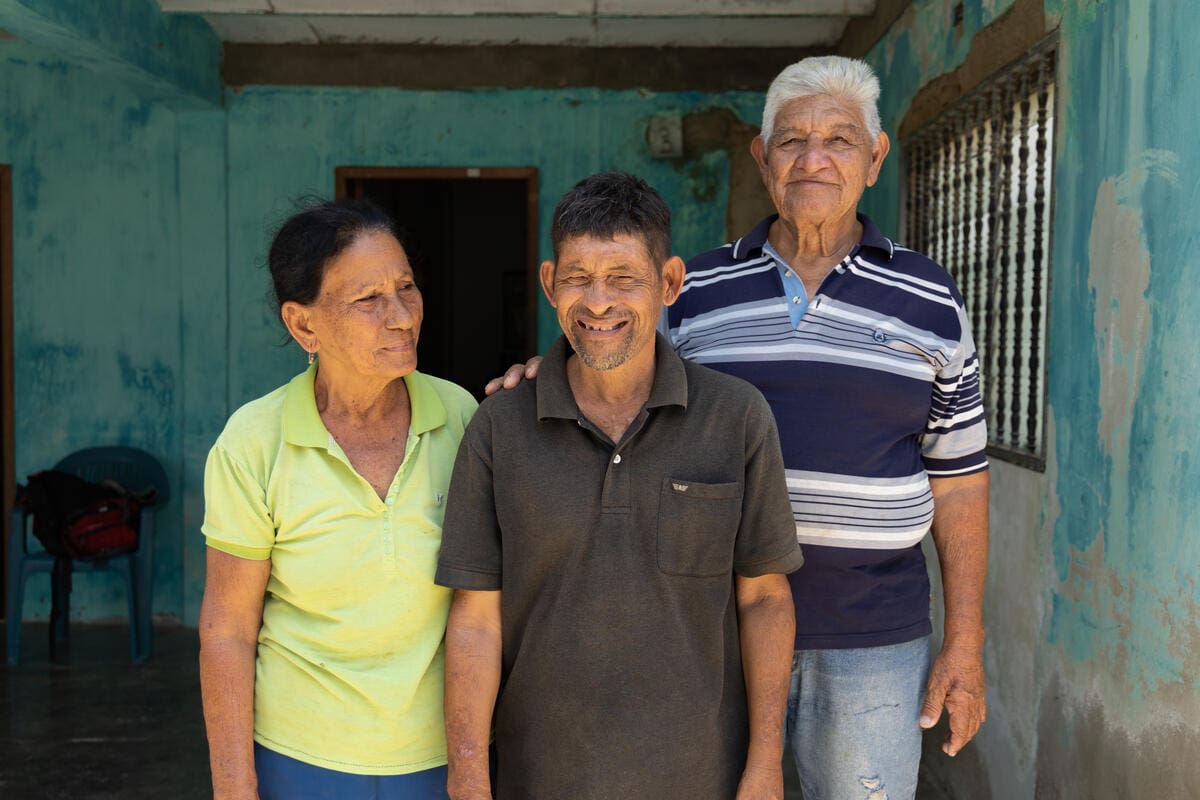
52-year-old Luis Enrique has a disability. His father shared, “I was convinced that I could give him everything he needed at home. But not anymore. Especially the food.” He added, “I had a hard time leaving him alone, but now I appreciate it. School is good for him. I should have done it much earlier, but it’s never too late.”
As the world comes to grips with the effects of the climate crisis, investments in rural development become increasingly important. In Madagascar, the Rapid Rural Transformation project connects remote communities to a reliable water source and solar power. For Sambeazee, access to water during a devastating drought enabled her to water her crops and feed her family.
The stories in our 2023 Statement of Impact reveal how WFP works to ensure people and communities can meet their immediate and long-term food needs, adapt to their changing climate, access education and training opportunities, and ultimately unlock their full potential.
###
Read the full report to review other highlights and learn more about the transformational impact of our work.
